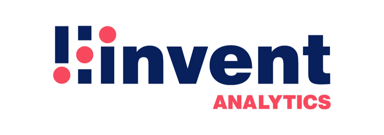Job Offers Checklist
Making a job offer is a big deal. When it's done right, it helps both the candidate and the company get off on the right foot. But if it’s not handled well, it can cause confusion, delays, or worse: losing a great hire.
The job offer is a chance to set expectations, give the candidate a sense of your company culture, and make sure everything’s clear. A smooth process helps you bring in top talent and also boosts your company’s reputation.
Follow this guide to avoid common pitfalls and make the job offer experience seamless and professional. ✨
Checklist
Confirm the candidate's fit.
Verify compensation & benefits.
Get final approvals.
Draft a clear job offer letter.
Outline the start date & onboarding plan.
Clarify employment type & conditions.
Review legal & compliance requirements.
Include a deadline for offer acceptance.
Prepare for negotiations.
Send a formal job offer & follow up.
Job Offers Checklist
1. Confirm the candidate's fit.
Take one final look at whether this candidate truly fits the role before making an offer. Think back to how they did in interviews, what skills they bring to the table, and how they'd mesh with the team. Check in with the hiring managers to review their feedback too.
A thorough review now helps avoid future headaches and keeps the team running smoothly. Worth giving their application materials and interview responses another quick scan. If any concerns arise, address them before making the offer to prevent hiring mismatches.
2. Verify compensation & benefits.
Make sure the pay and benefits package make sense all around. It should fit company policies, be competitive with similar roles in the industry, and match what the candidate is looking for.
Go through everything: their base pay, potential bonuses, health coverage, any stock options, and additional perks. Getting the compensation right is crucial. If the numbers are off, they might decline the offer or leave within a few months.
It’s essential to compare your compensation package with competitors. Research industry salary benchmarks to ensure you’re offering a competitive package. Be prepared to explain the benefits in detail, including vacation policies, wellness programs, and growth opportunities.
3. Get final approvals.
Double-check that everyone who needs to sign off has done so: especially the hiring manager, department head, and finance team. Confirm the budget’s right and everything’s lined up.
Delays in getting approvals can slow things down and might even cost you a great candidate. Keep communication flowing smoothly to speed up the process and make extending the offer a breeze.
4. Draft a clear job offer letter.
A good job offer letter should include all important details like job title, responsibilities, salary, benefits, location, and reporting structure. Make sure it is brief, professional, and legally correct.
Avoid generic language and personalize the letter where possible. Address the candidate by name, mention specific discussions from the interview, and highlight the value they will bring to the team.
5. Outline the start date & onboarding plan.
Decide on the candidate's start date and plan their onboarding. A good onboarding process helps them feel welcomed. Make sure to share details about orientation, training, and how they'll meet the team.
A solid onboarding plan helps new hires feel comfortable and welcomed. Set them up with a mentor, plan some check-ins, and make sure they have all the tools and info they need before they start.
6. Clarify employment type & conditions.
Define the job type: full-time, part-time, contract, or temporary. It's also good to be upfront about any key details like probation periods, non-compete clauses, and confidentiality agreements. Being open about these things now can avoid confusion down the line.
Clearly define expectations regarding remote work, overtime policies, and potential travel requirements. These details can impact the candidate’s decision and help them prepare for their new role.
7. Review legal & compliance requirements.
Make sure the job offer follows all the necessary labor laws and company rules. This means paying at least the minimum wage, offering equal opportunities to everyone, checking work authorization, and considering any special legal rules for your industry.
Consult with legal advisors or HR specialists if necessary. Having a legally sound job offer protects both the company and the candidate from future problems.
8. Include a deadline for offer acceptance.
Provide a clear deadline for the candidate to respond to the offer. Giving the candidate a few days, like 3-5 business days, lets them think things through without rushing them, but also encourages a quicker response.
Setting a deadline also allows HR to plan accordingly. If the candidate declines, you can quickly move forward with alternative options.
9. Prepare for negotiations.
Be ready to discuss salary adjustments, benefits, or job responsibilities if the candidate requests changes. Have a predefined range for flexibility and ensure all changes receive necessary approvals before finalizing the offer.
Negotiations happen in most hiring processes. Just keep an open mind and be willing to work with reasonable requests. However, ensure that any final agreement aligns with company policies.
10. Send a formal job offer & follow up.
When everything's ready, send the official offer letter by email or through a secure platform. Then, check in with the candidate to make sure they received it and see if they have any questions. Clear communication at this stage helps reinforce their excitement about joining the company.
Consider making a personal call before sending the offer letter. This adds a human touch and allows you to answer any immediate questions.
Common Mistakes When Making Job Offers
Even experienced HR professionals can make mistakes when extending job offers. 📌
Unclear compensation details can cause confusion or distrust, making candidates hesitant to accept. Delays in the offer process may result in losing top talent to competing employers. Ignoring market trends by offering below-market salaries or outdated benefits can lead to rejection.
A lack of personalization in the offer letter can make candidates feel undervalued. It is important to address their specific concerns and show appreciation for their unique skills.
Failure to address legal issues can expose the company to risks, making compliance checks a critical step. Not following up after sending the offer can leave the candidate feeling uncertain and might even cause you to miss out on a great opportunity.
Avoiding these mistakes will improve the candidate experience and ensure a more efficient hiring process. ⭐️
Remember that each job offer is an opportunity to showcase your organization's professionalism and values.
A smooth and clear job offer process helps you attract top talent and makes it easier for new hires to transition into their roles. HR professionals should focus on creating a seamless experience for candidates while staying transparent.
Taking the time to fine-tune your offer process pays off. It helps build a solid reputation and leads to better hires. While this checklist covers the basics, adjust it based on what makes sense for your company's unique setup and culture. 🚀
Contents
Get a demo
- Quickly find top candidates with smart application management
- Improve team collaboration using built-in communication and workflows
- Offer a smooth candidate experience to strengthen your employer brand
- Count on 24/7 support for a hassle-free hiring process
- Quickly find top candidates with smart application management
- Improve team collaboration using built-in communication and workflows
- Offer a smooth candidate experience to strengthen your employer brand
- Count on 24/7 support for a hassle-free hiring process
"We truly felt the speed difference. Everything was smoother, and candidate feedback was much more positive. It made our jobs easier."

Trusted by 100+ teams
Get Informed,F.A.Q.
Revolutionize your hiring process with our transformative Applicant Tracking System (ATS.)















